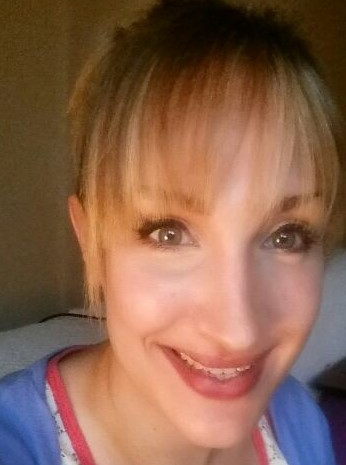Listening to patients and thinking outside the box can make the difference between diagnosis and dismissal, says Kirsty Gadsby
 When I was diagnosed with achalasia after six years of symptoms I felt like a heavy weight had been lifted off my shoulders. I was now able to see a way forward and felt validated after many years of feeling like a fraud.
When I was diagnosed with achalasia after six years of symptoms I felt like a heavy weight had been lifted off my shoulders. I was now able to see a way forward and felt validated after many years of feeling like a fraud.
My journey to diagnosis, as I suspect with most people with rare conditions, was not straightforward. Gastro-oesophageal reflux disease was always the go to diagnosis when barium swallows, endoscopies, investigative surgery, x rays, blood tests, and speech and language assessments showed nothing remarkable. After years of being prescribed proton pump inhibitors (PPIs) on and off to no effect, in between being told there was nothing wrong and just to live with it, my symptoms progressively worsened from regurgitating all solid food to the point where even keeping down water was a daily challenge.
Feeling like a nuisance and being dismissed made me feel lost and I began to question my mental health. Things carried on in this vein until I was lucky enough to get an appointment with a different GP at my local surgery. I was not waved away with PPIs and was sent to a different gastroenterologist for a second endoscopy. The consultant who saw me took me by surprise: his manner was genuine, he took the time to speak to me, and—most importantly of all—I felt believed and heard.
I have worked in a hospital and I am aware of the pressures all staff in the medical profession face. However, the five minutes this consultant took to ask me questions before the endoscopy changed my life. He understood that the usual options had been exhausted over the past six years and said it was time to think outside the box. With this in mind, he sent me for an oesophageal manometry test, which confirmed achalasia.
While waiting for surgery I began to research my condition to try to make sense of it in terms that I could relate to. At the time, apart from a few factual articles from the NHS and American medical organisations, I could not find what I was really seeking, which were firsthand patient accounts. After the struggle to be diagnosed I wanted to know how other people had experienced their journey to diagnosis with this condition, how they coped, and what the treatment options were like to live with in real life instead of impersonal, albeit informative, statistics and summary pages.
After finding a distinct lack of relatable content online and on social media platforms, I decided to create a small series of YouTube videos, ranging from my experiences up to diagnosis to six months after treatment with Heller myotomy with fundoplication surgery. The first of these videos is shown in the link below.
https://www.youtube.com/watch?v=W0BpgOJExbs&t
The YouTube channel has become a place where fellow patients can talk and share their experiences alongside raising awareness of the condition. With achalasia being relatively rare, it is reassuring and comforting to have a shared space to connect with others who understand what you are going through.
As achalasia is a progressive condition I do understand the difficulties that doctors face in reaching a diagnosis. However, I think it is vital to consider that if the patient is repeatedly not improving and getting worse then other options must be looked into. It is very distressing when doctors who are uncertain of a diagnosis dismiss a patient’s symptoms, telling a patient there is nothing wrong, and making them feel increasingly isolated and lost. I may have looked for all intents and purposes like a healthy individual. When my symptoms reached a crisis point over the last six months before diagnosis I had lost three and a half stone—the effect of which may have counterintuitively made me look better. However, what was overlooked was that my hair was starting to fall out, my menstruation had stopped completely, and I was constantly battling with dehydration and debilitating oesophageal spasms.
From a patient perspective taking the time to consider the history of the symptoms behind the presenting complaints can alter the course of that patient’s condition. The five minutes the gastroenterology consultant gave me right before my endoscopy made the difference between diagnosis and treatment and feeling dismissed and being left to deteriorate further.
Diagnosis gave me a path to get my life back and I will be forever grateful to my gastroenterology consultant who took the time to listen and thought outside the box.
Kirsty Gadsby has an MSc in public health nutrition from the University of Chester and works for the NHS.
Competing interests: None declared
